Кто изобрел Вселенную? Страсти по божественной частице в адронном коллайдере и другие истории о науке, вере и сотворении мира [заметки]
1
Albert Einstein, «Religion and Science». В кн.: «Ideas and Opinions», New York: Crown Publishers, 1954, р. 38.
2
Johann Peter Eckermann, «Gespräche mit Goethe in den letzten Jahren seines Lehens», 3 vols, Leipzig: EA. Brockhaus, 1836, vol. 2, p. 50.
3
Aristotle, «Metaphysics», 982b. См. также Plato, «Theaetetus», 154b – 155c. Познавательные рассуждения на ту же тему можно найти в статье Jerome Miller, «In the Throe of Wonder», Albany: State University of New York Press, 1992, pp. 11–52.
4
Thomas Aquinas, «Summa Theologiae Iallae» q. 32, a. 8. Обсуждение этой темы см. в работе Reinhard Hütter, «Dust Bound for Heaven: Explorations in the Theology of Thomas Aquinas», Grand Rapids, MI: Eerdmans, 2012, pp. 244–6.
5
Peter Medawar, «The Limits of Science», Oxford: Oxford University Press, 1987, p. 66.
6
José Ortega y Gasset, «El origen deportivo del estado», «Citius, Altius, Fortius» 9, no. 1–4, 1967, pp. 259–76; цит. на p. 259.
7
John Dewey, «The Quest for Certainty», New York: Capricorn Books, 1960, p. 255.
8
О мудрости см. William G. Compton, Edward Hoffman, «Positive Psychology: The Science of Happiness», 2>nd ed., Belmont, CA: Wadsworth, 2013, pp. 199–228.
9
C. S. Lewis, «Essay Collection», London: HarperCollins, 2002, p. 21. Подробнее об этом см. Alister E. McGrath, «The Privileging of Vision: Lewis’s Metaphors of Light, Sun, and Sight», в кн. «The Intellectual World of C. S. Lewis», Oxford: Wiley-Blackwell, 2013, pp. 83–104.
10
Письмо Л. Т. Даффу от 10 мая 1943 года, цит. по «The Letters of Dorothy L. Sayers», Volume II, 1937 to 1943, ed. Barbara Reynolds, New York: St Martin’s Press, 1996, p. 401.
11
Письмо Уильяму Темплу, архиепископу Кентерберийскому, от 7 сентября 1943 года, Ibid., p. 429.
12
Salman Rushdie, «Is Nothing Sacred?», The Herbert Read Memorial Lecture 1990, Cambridge: Granta, 1990, p. 8.
13
Альберт Эйнштейн, письмо к Генриху Цангеру от 10 марта 1914 года. Цит. по: Martin J. Klein, A. J. Kox and Robert Schulmann (eds), «The Collected Papers of Alhert Einstein», Volume 5: The Swiss Years: Correspondence, 1902–1914, Princeton, NJ: Princeton University Press, 1993, p. 381.
14
Eugene Wigner, «The Unreasonable Effectiveness of Mathematics», «Communications on Pure and Applied Mathematics» 13, 1960, рр. 1–14.
15
C. A. Coulson, «Science and Christian Belief», London: Oxford University Press, 1955, pp. 19–20.
16
Ibid., pp. 97–102.
17
Впоследствии я обнаружил похожие аргументы у сэра Питера Медавара в его знаменитой Роменсовской лекции, которую он прочитал в Оксфорде. Peter Medawar, «Science and Literature», Encounter, January 1969, pp. 15–23.
18
Richard Dawkins, «A Survival Machine», в кн.: «The Third Culture», ed. John Brockman, New York: Simon & Schuster, 1996, pp. 75–95.
19
Thomas Aquinas, «Disputed Questions about the Power of God», q. 6, 21.2.
20
Richard Dawkins, «Unweaving the Rainbow: Science, Delusion and the Appetite for Wonder», London: Penguin Books, 1998, p. xiii.
21
Этот важный вопрос разбирается в книге Kalevi Kull and Claus Emmeche (eds), «Towards a Semiotic Biology: Life is the Action of Signs», London: Imperial College Press, 2011. О философски-теологических аспектах этой темы см. Luigi Giussani, «Il Senso Religioso», 2>nd ed., Milan: Jaca Books, 1977, pp. 29–40; C. Stephen Evans, «Natural Signs and Knowledge of Cod», Oxford: Oxford University Press, 2010, pp. 26–46.
22
Augustine of Hippo, «Sermons» 68, 6.
23
См., например, Dacher Keltner and Jonathan Haidt, «Approaching Awe, a Moral, Spiritual and Aesthetic Emotion», «Cognition and Emotion» 17, 2003, pp. 297–314.
24
Mary Midgley, «Evolution as a Religion: Strange Hopes and Stranger Fears», 2>nd ed., London: Routledge, 2002, pp. 17–18.
25
Dawkins, «Unveawing the Rainbow», p. xii.
26
См. Alister E. McGrath, «Dawkins’ God: From the Selfish Gene to the God Delusion», 2>nd ed, Oxford: Wiley-Blackwell, 2015.
27
Christopher Hitchens, «Letters to a Young Contrarian», New York: Basic Books, 2001, p. 55.
28
Greg M. Epstein, «Less Anti-theism, More Humanism», «Washington Post», 1 октября 2007 г.
29
Plato, «Republic», 560e-561a.
30
См. в особенности Ronald L. Numbers (ed.), «Galileo Goes to Jail and Other Myths about Science and Religion», Cambridge, MA: Harvard University Press, 2009. Об общественно-политических причинах «конфликта» в конце XIX века см. Frank Miller Turner, «The Victorian Conflict between Science and Religion: A Professional Dimension», Isis 69, 1978, pp. 356–76. Хороший обзор исторических предпосылок см. в кн. J. B. Stump and Alan G. Padgett (eds), «The Blackwell Companion to Science and Christianity», Malden, MA; Wiley-Blackwell, 2012, pp. 3–60.
31
Прекрасный общий обзор – Thomas Dixon, «Science and Religion: A Very Short Introduction», Oxford: Oxford University Press, 2008, pp. 1–17.
32
Ibid., p. 3.
33
Charles Taylor, «A Secular Age», Cambridge, MA: Belknap Press, 2007. Прекрасные эссе на подобные темы см. в Michael Warner, Jonathan Van Antwerpen and Craig J. Calhoun (eds), «Varieties of Secularism in a Secular Age», Cambridge, MA: Harvard University Press, 2010.
34
http://www.krishnaconsciousnessmovement.com/moonlanding.html. Ссылка действительна на 23 декабря 2015 года. Имеется в виду расстояние, указанное в «Бхагавата-пурана» 5.22.8. Это представление нельзя рассматривать как показатель сложных отношений науки и индуизма. Существенные замечания по этому поводу см. в кн. David L. Gosling, «Science and the Indian Tradition: When Einstein Met Tagore», London: Routledge, 2007; C. Mackenzie Brown, «Hindu Perspectives on Evolution: Darwin, Dharma and Design», London: Routledge, 2012; Jonathan B. Edelmann, «Hindu Theology and Biology: The Bhagavata Purana and Contemporary Theory», Oxford: Oxford University Press, 2012.
35
Barbara Herrnstein Smith, «Natural Reflections: Human Cognition at the Nexus of Science and Religion», New Haven, CT: Yale University Press, 2009, pp. 121–49.
36
Eugenie C. Scott, «Darwin Prosecuted: Review of Johnson’s “Darwin on Trial”», «Creation/Evolution Journal» 13, no. 2, 1993, pp. 36–47; цит. на стр. p. 43. «Creation/Evolution Journal» с 1997 года входит в «Reports of the National Center for Science Education».
37
Alvin Plantinga, «Where the Conflict Really Lies: Science, Religion, and Naturalism, New York: Oxford University Press, 201 1, pp. 168–74.
38
Stephen Jay Gould, «Nonoverlapping Magisteria», «Natural History» 106, March 1997, pp. 16–22.
39
См., в частности, Peter Harrison, «The Territories of Science and Religion», Chicago: University of Chicago Press, 2015. Харрисон справедливо замечает, что наши концепции религии и науки сформировались совсем недавно, лишь в последние три столетия, и именно эти концепции, а не идеи, которые стоят за ними, и формируют сегодня наши представления о науке, вере и Боге.
40
C. S. Lewis, «Christian Reflections», Grand Rapids: Eerdmans, 1967, р. 65.
41
Peter R. Dear, «The Intelligibility of Nature: How Science Makes Sense of the World», Chicago: University of Chicago Press, 2008, p. 173.
42
Crystal L. Park, «Religion as a Meaning-Making Framework in Coping with Life Stress», «Journal of Social Issues» 61, no. 4, 2005, pp. 707–29.
43
Karl R. Popper, «Natural Selection and the Emergence of Mind», «Dialectica» 32, 1978, pp. 339–55; цитата на p. 342.
44
Thomas H. Huxley, «Darwiniana», London: Macmillan, 1893, p. 252.
45
Stephen Jay Gould, «Impeaching a Self-Appointed Judge», «Scientific American» 267, no. 1, 1992, pp. 118–21.
46
См. в особенности Mary Midgley, «Evolution as a Religion: Strange Hopes and Stranger Fears», 2>nd ed., London: Routledge, 2002.
47
Mary Midgley, «The Solitary Self: Darwin and the Selfish Gene», Durham: Acumen, 2010.
48
См., например, Mary Midgley, «The Myths We Live By», London: Routledge, 2004.
49
David E. Rumelhart, «Schemata: The Building Blocks of Cognition», в кн.: «Theoretical Issues in Reading Comprehension: Perspectives from Cognitive Psychology», ed. R. J. Spiro, B. C. Bruce and W. F. Brewer, Hillsdale, NJ: Erlbaum, 1980, pp. 33–58.
50
Charles Taylor, «A Secular Age», Cambridge, MA: Belknap Press, 2007.
51
Michel Foucault, «Madness and Civilization: A History of Insanity in the Age of Reason», London: Routledge, 1995.
52
Richard Dawkins, «The Selfish Gene», 2>nd ed., Oxford: Oxford University Press, 1989, p. 330 (этот отрывок добавлен во втором издании).
53
Freeman Dyson, «The Scientist as Rebel», в кн. «Nature’s Imagination: The Frontiers of Scientific Vision», ed. John Cornwell, Oxford: Oxford University Press, 1995, pp. 1–11.
54
George M. Marsden, «A Short Life of Jonathan Edwards», Grand Rapids, MI: Eerdmans, 2008, p. 131.
55
О прискорбных заблуждениях Шоу см. Sally Peters, «Commentary: Bernard Shaw’s Dilemma: Marked by Mortality», «International journal of Epidemiology» 32, no. 6, 2003, pp. 918–19.
56
Maurice A. Finocchiaro, «Defending Copernicus and Galileo: Critical Reasoning in the Two Affairs», New York: Springer, 2010. См. также Stephen Mason, «Galileo’s Scientific Discoveries, Cosmological Confrontations, and the Aftermath», «History of Science» 40, 2002, рр. 377–406.
57
John Paul II, «Faith Can Never Conflict with Reason», «L’Osservatore Romano» 49, November 1992, p. 2.
58
«A Pox on Cell-Stem Research», «New York Times», 1 августа 2006 года.
59
Систематическое развенчание этого мифа и еще двадцати четырех ему подобных см. в кн. Ronald L. Numbers (ed.), «Galileo Goes to Jail and Other Myths about Science and Religion», Cambridge, MA: Harvard University Press, 2009.
60
James R. Moore, «The Post-Darwinian Controversies: A Study of the Protestant Struggle to Come to Terms with Darwin in Great Britain and America, 1870–1900», Cambridge: Cambridge University Press, 1979, pp. 99–100.
61
Одна из первых книг, где излагается эта точка зрения, – David C. Lindberg, Ronald L. Numbers, «God and Nature: Historical Essays on the Encounter between Christianity and Science», Berkeley, CA: University of California Press, 1986. Лучшая из работ последнего времени – David C. Lindberg, Peter Harrison, «Early Christianity», в кн. «Science and Religion around the World: Historical Perspectives», ed. John Hedley Brooke and Ronald L. Numbers, Oxford: Oxford University Press, 2011, pp. 67–91.
62
История этой абсурдной идеи изложена в кн. Jeffrey Burton Russell, «Inventing the Flat Earth: Columbus and Modern Historians», New York: Praeger, 1991; Christine Garwood, «Flat Earth: The History of an Infamous Idea», London: Macmillan, 2007.
63
Paul Davies, «The Mind of God: Science and the Search for Ultimate Meaning», London: Penguin, 1992, p. 77.
64
Прекрасный разбор частных случаев см. в статье Peter Harrison, «Sentiments of Devotion and Experimental Philosophy in Seventeenth-Century England», «Journal of Medieval and Early Modern Studies» 44, no. 1, 2014, pp. 113–33.
65
Этот вопрос разбирается в авторитетном исследовании Peter Harrison, «The Fall of Man and the Foundations of Science», Cambridge: Cambridge University Press, 2007.
66
Среди лучших эмпирических исследований современного представления о нарративе противостояния, бытующего среди ученых, см. Elaine Howard Ecklund, «Science vs. Religion: What Scientists Really Think», Oxford: Oxford University Press, 2010, p. 5.
67
F. J. Tipler, C. J. S. Clarke and G. F. R. Ellis, «Singularities and Horizons – A Review Article», в кн. «General Relativity and Gravitation: One Hundred Years after the Birth of Albert Einstein», ed. A. Held, New York: Plenum Press, 1980, pp. 97–206, цитата на p. 110.
68
К семидесятым-восьмидесятым годам прошлого века это стало окончательно ясно; см., например, Frank Miller Turner, «The Victorian Conflict between Science and Religion: A Professional Dimension», «Isis» 69, 1978, pp. 356–76; Colin A. Russell, «The Conflict Metaphor and Its Social Origins», «Science and Christian Faith» 1, 1989, pp. 3–26.
69
Jack Morrell, Arnold Thackray, «Gentlemen of Science: Early Years of the British Association for the Advancement of Science», Oxford: Oxford University Press, 1981, p. 395.
70
Matthew Stanley, «Huxley’s Church and Maxwell’s Demon: From Theistic Science to Naturalistic Science», Chicago: University of Chicago Press, 2015, pp. 242–63.
72
Mary Midgley, «Are You an Illusion?» Durham: Acumen, 2014, p. 5.
73
Peter Medawar, «The Limits of Science», Oxford: Oxford University Press, 1987, p. 66.
74
Roy Baumeister, «Meanings of Life», New York: Guilford Press, 1991, pp. 29–57.
75
Ludwig Wittgenstein, «Philosophical Investigations», 3>nd ed., Oxford: Blackwell, 1968, p. 48.
76
Midgley, «The Myths We Live By», pp. 26–8.
77
Mary Midgley, «Dover Beach» (неопубликованное эссе), цит. по Nelson Rivera, «The Earth is Our Home: Mary Midgley’s Critique and Reconstruction of Evolution and its Meanings», Exeter: Imprint Academic, 2010, p. 179 n. 21.
78
Mary Midgley, «Wisdom, Information, and Wonder: What Is Knowledge For?» London: Routledge, 1995, p. 199.
79
Roy Bhaskar, «The Possibility of Naturalism: A Philosophical Critique of the Contemporary Human Sciences», 3>nd ed., London: Routledge, 1998.
80
См., например, Leslie Stevenson, David L. Haberman (eds), «Twelve Theories of Human Nature», New York: Oxford University Press, 2012.
81
F. H. T. Rhodes, «Christianity in a Mechanistic Universe», в кн.: «Christianity in a Mechanistic Universe and Other Essays», ed. D. M. MacKay, London: InterVarsity Press, 1965, pp. 11–50, цитата на p. 42.
82
Christian Smith, «Moral, Believing Animals: Human Personhood and Culture», Oxford: Oxford University Press, 2009, p. 64.
83
Elinor Ochs and Lisa Capps, «Narrating the Self», «Annual Review of Anthropology» 25, 1996, pp. 19–43.
84
Hendrik L. Bosnian, «Origin and Identity: Rereading Exodus as a Polemical Narrative Then (Palestine) and Now (Africa)», «Scriptura» 90, 2005, pp. 869–77.
85
Интересное междисциплинарное исследование – Lewis P. Hinchman, Sandra K. Hinchman (eds), «Memory, Identity, Community: The Idea of Narrative in the Human Science», Albany, NY: State University of New York Press, 1997.
86
См. в особенности C. S. Lewis, «Is Theology Poetry?», в кн. «Essay Collection», London: HarperCollins, 2002, pp. 1–21. О том, что для Льюиса литературоведческое понятие «мифа» соответствовало метанарративу, см. Alister E. McGrath, «A Gleam of Divine Truth: The Concept of Myth in Lewis’s Thought», в кн. «The Intellectual World of C. S. Lewis, Oxford: Wiley-Blackwell, 2013, pp. 55–82.
87
Smith, «Moral, Believing Animals», pp. 63–94.
88
Важные соображения на этот счет см. в работе Cristine Legare, E. Margaret Evans, Karl S. Rosengren, Paul L. Harris, «The Coexistence of Natural and Supernatural Explanations across Cultures and Development», «Child Development» 83, no. 3, 2012, pp. 779–93.
89
Яркий пример – возрожденческая метафора «двух книг», о науке и религии; см. Giuseppe Tanzella-Nitti, «The Two Books Prior to the Scientific Revolution», «Annales Theologici» 18, 2004, pp. 51–83.
90
«Учить тому, как жить без уверенности и в то же время не быть парализованным нерешительностью – это, пожалуй, главное, что может сделать философия в наш век для тех, кто занимается ею» (Пер. В. Целищева). Bertrand Russell, «A History of Western Philosophy», London; George Allen & Unwin Ltd, 1946, p. xiv.
91
Richard Dawkins, «The Selfish Gene», 2>nd ed., Oxford: Oxford University Press, 1989, p. 330.
92
Хорошее описание истории «лысенковщины» в сороковые годы см. в книге Nikolai L. Krementsov, «Stalinist Science», Princeton, NJ: Princeton University Press, 1997, pp. 54–83.
93
Превосходное исследование этой тяги и ее последствий для медицины – Mark H. Waymack, «Yearning for Certainty and the Critique of Medicine as “Science”», «Theoretical Medicine and Bioethics» 30, no. 3, 2009, pp. 215–29.
94
Henry Miller, «Big Sur and the Oranges of Hieronymus Bosch», New York: New Directions, 1957, p. 25.
95
Carl Sagan, «Why We Need To Understand Science», «Skeptical Inquirer» 14, no. 3, Spring 1990.
96
Charles Gore, «The Incarnation of the Son of God», London: John Murray, 1922, pp. 105–6.
97
Научная сторона дела изложена в кн. Helge Kragh, «Conceptions of Cosmos: From Myths to the Accelerating Universe: A History of Cosmology», Oxford: Oxford University Press, 2007, pp. 46–65.
98
См. классическую работу Thomas S. Kuhn, «The Copernican Revolution», New York: Random House, 1959.
99
Очень доступное изложение этой истории см. в кн. Allan Chapman, «Stargazers: Copernicus, Galileo, the Telescope and the Church», Oxford: Lion, 2014.
100
Сборник статей ведущих исследователей, излагающих разные точки зрения по этому поводу, – Bernard Carr (ed.), «Universe or Multiverse?» Cambridge: Cambridge University Press, 2007.
101
Abigail J. Lustig, «Darwin’s Difficulties», в кн. «The Cambridge Companion to the “Origin of Species”», ed. Michael Ruse and Robert J. Richards, Cambridge: Cambridge University Press, 2009, pp. 109–28.
102
Pietro Corsi, «Before Darwin: Transformist Concepts in European Natural History», «Journal of the History of Biology» 38, 2005, рр. 67–83.
103
Charles Darwin, «Origin of Species», London: John Murray, 1859, p. 171.
104
Hugh G. Gauch, «Scientific Method in Practice», New York: Cambridge University Press, 2003, p. 152.
105
Richard Dawkins, «A Devil’s Chaplain», London: Weidenfield & Nicholson, 2003, p. 81.
106
William T. Scott and Martin X. Moleski, «Michael Polanyi: Scientist and Philosopher», Oxford: Oxford University Press, 2005.
107
Leon M. Lederman, «The God Particle: If the Universe Is the Answer, What Is the Question?» Boston: Houghton Mifflin, 1993. Относительно недавняя работа по той же теме – Leon M. Lederman, Christopher T. Hill, «Beyond the God Particle», Amherst, NY: Prometheus Books, 2013.
108
Sami Paavola, «Peircean Abduction: Instinct, or Inference?», «Semiotica» 153, 2005, pp. 131–54.
109
Текст этого выступления воспроизведен в August Kekulé, «Benzolfest Rede», «Berichte der deutschen chemischen Gesellschaft Zu Berlin» 23, 1890, pp. 1302–11.
110
См. собрание эссе Mark Boda, Gordon T. Smith (eds), «Repentance in Christian Theology», Collegeville, MN: Liturgical Press, 2006.
111
Kathleen Norris, «Dakota: A Spiritual Geography», New York: Houghton Mifflin, 2001, p. 197.
112
N. R. Hanson, «Patterns of Discovery: An Inquiry into the Conceptual Foundations of Science», Cambridge: Cambridge University Press, 1961.
113
G. K. Chesterton, «The Return of the Angels», «Daily News», 14 марта 1903 года.
114
W. V. O. Quine, «Two Dogmas of Empiricism», в кн. «From a Logical Point of View», 2>nd ed., Cambridge, MA: Harvard University Press, 1951, p. 42.
115
C. S. Lewis, «Surprised by Joy», London: HarperCollins, 2002, p. 201. См. также Alister E. McGrath, «An Enhanced Vision of Rationality: C. S. Lewis on the Reasonableness of Christian Faith», Theology 116, no. 6, 2013, pp. 410–17.
116
Lewis, «Surprised by Joy», p. 197.
117
Это утверждение содержится в рукописи, получившей название «Early Prose Joy», которая хранится в Центре им. Уэйда в Уитонском колледже, в Иллинойсе.
118
Об этом, в частности, см. Scott A. Kleiner, «Explanatory Coherence and Empirical Adequacy: The Problem of Abduction, and the Justification of Evolutionary Models», «Biology and Philosophy» 18, 2003, pp. 513–27; David H. Glass, «Coherence Measures and Inference to the Best Explanation», «Synthese» 157, 2007, pp. 275–96; Stathis Psillos, «The Fine Structure of Inference to the Best Explanation», «Philosophy and Phenomenological Research» 74, 2007, pp. 441–8.
119
C. S. Lewis, «ls Theology Poetry?», в кн. «C. S. Lewis: Essay Collection», London: Collins, 2000, p. 21.
120
Прекрасный (и относительно популярный) обзор М-теории см. в Neil Lambert, «M-Theory and Maximally Supersymmetric Gauge Theories», «Annual Review of Nuclear and Particle Science» 62, 2012, рр. 285–313.
121
Peter Woit, «Not Even Wrong: The Failure of String Theory and the Search for Unity in Physical Law», London: Jonathan Cape, 2006, p. 167.
122
C. S. Lewis, «The Poison of Subjectivism», в «Essay Collection», p. 250.
123
William James, «The Will to Believe», New York: Dover Publications, 1956, p. 51.
124
Terry Eagleton, «Reason, Faith, and Revolution: Reflections on the God Debate», New Haven, CT: Yale University Press, 2009, p. 7.
125
Simone Weil, «First and Last Notebooks», London: Oxford University Press, 1970, p. 147.
126
Peter B. Medawar and Jean Medawar, «The Life Science: Current Ideas of Biology», London: Wildwood House, 1977, p. 171.
127
Richard Dawkins, «River out of Eden: A Darwinian View of Life», London: Phoenix, 1995, p. 133.
128
Henry A. Wolfson, «Patristic Arguments against the Eternity of the World», «Harvard Theological Review» 59, 1966, pp. 351–67; Richard Sorabji, «Time, Creation and the Continuum», Ithaca, NY: Cornell University Press, 1983.
129
Simo Knuuttila, «Time and Creation in Augustine», в «The Cambridge Companion to Augustine», ed. Eleonore Stump and Norman Kretzmann, Cambridge: Cambridge University Press, 2001, pp. 103–15.
130
Steven Snyder, «Albert the Great: Creation and the Eternity of the World», в «Philosophy and the God of Abraham», ed. R. James Long, Toronto, ON: Pontifical Institute of Biblical Studies, 1991, pp. 191–202.
131
Svante Arrhenius, «Worlds in the Making: The Evolution of the Universe», New York: Harper, 1908, p. xiv.
132
См., например, Edward R. Harrison, «Cosmology: The Science of the Universe», 2>nd ed., Cambridge: Cambridge University Press, 2000; Helge Kragh, «Conceptions of Cosmos: From Myths to the Accelerating Universe: A History of Cosmology», Oxford: Oxford University Press, 2007.
133
Прекрасное исследование этой темы – Robert W. Smith, «The Expanding Universe: Astronomy’s “Great Debate”, 1900–1931», Cambridge: Cambridge University Press, 2010.
134
Эта история рассказана в книге Jeremy Bernstein, «Three Degrees above Zero: Bell Laboratories in the Information Age», New York: Scribner’s, 1984.
135
Douglas Scott, «The Standard Cosmological Model», «Canadian Journal of Physics» 84, 2006, pp. 419–35.
136
Об этом см. R. B. Partridge, «3K: The Cosmic Microwave Background Radiation», Cambridge: Cambridge University Press, 1995.
137
См., например, John H. Walton, «Genesis 1 as Ancient Cosmology», Winona Lake, IN: Eisenbrauns, 2011; William Brown, «The Seven Pillars of Creation», New York: Oxford University Press, 2010; Stephen Barton and David Wilkinson (eds), «Reading Genesis After Darwin», Oxford: Oxford University Press, 2009.
138
Rémi Brague, «The Wisdom of the World: The Human Experience of the Universe in Western Thought», Chicago, IL: University of Chicago Press, 2003, pp. 17–25.
139
Roger Scruton, The Face of God, London: Bloomsbury, 2014, p. 8.
140
John Polkinghorne, «Science and Creation: The Search for Understanding», London: SPCK, 1988, p. 20.
141
Eugene Wigner, «The Unreasonable Effectiveness of Mathematics», «Communications on Pure and Applied Mathematics» 13, 1960, pp. 1–14.
142
Подробное обсуждение этого вопроса с примерами см. в кн. Mario Livio, «Is God a Mathematician?», New York: Simon & Schuster, 2009.
143
Polkinghorne, «Science and Creation», pp. 20–1.
144
См., например, Max Tegmark, «Our Mathematical Universe: My Quest for the Ultimate Nature of Reality», New York: Alfred A. Knopf, 2013.
145
Albert Einstein, «Physics and Reality» (1936), «Ideas and Opinions», New York: Bonanza, 1954, p. 292.
146
Roger Penrose, «The Road to Reality: A Complete Guide to the Laws of the Universe», London: Jonathan Cape, 2004.
147
См. Daniel C. Dennett, «Darwin’s Dangerous Idea: Evolution and the Meaning of Life», New York: Simon & Schuster, 1995; Daniel C. Dennett, «Breaking the Spell: Religion as a Natural Phenomenon», New York, Viking Penguin, 2006. Культурная и научная деконструкция сугубо американских представлений Деннета о религии – Donovan Schaefer, «Blessed, Precious Mistakes: Deconstruction, Evolution, and the American New Atheism», «International Journal for Philosophy of Religion» 76, 2014, pp. 75–94.
148
Arthur Balfour, «The Foundations of Belief», New York: Longmans, 1895, р. 117
149
Alvin Plantinga, «Where the Conflict Really Lies: Science, Religion, and Naturalism», New York: Oxford University Press, 2011.
150
См., в частности, Philip Kitcher, «Explanatory Unification», «Philosophy of Science» 48, no. 4, 1981, pp. 507–31; Rebecca Schweder, «A Defense of a Unificationist Theory of Explanation», «Foundations of Science» 10, 2005, pp. 421–35.
151
Mark Balaguer, «Platonisrn and Anti-Platonism in Mathematics», New York: Oxford University Press, 1998.
152
Peter Lipton, «Inference to the Best Explanation», 2>nd ed., London: Routledge, 2004.
153
Martin J. Rees, «Just Six Numbers: The Deep Forces that Shape the Universe», London: Phoenix, 2000; Paul Davies, «The Goldilocks Enigma: Why Is the Universe Just Right for Life?» London: Allen Lane, 2006, pp. 147–71
154
Freeman J. Dyson, «Disturbing the Universe», New York: Harper & Row, 1979, р. 250.
155
Fred Hoyle, «The Universe: Past and Present Reflections», «Engineering and Science» 45, no. 2, 1981, pp. 8–12, цит. на p. 12.
156
Stephen Hawking and Leonard Mlodinow, «The Grand Design», London: Bantam Books, 2010.
157
Stephen Hawking and Leonard Mlodinow, «The Grand Design», p. 5.
158
Ibid., p. 180.
159
Критический анализ см. в кн. John C. Lennox, «God and Stephen Hawking: Whose Design Is It Anyway?» Oxford: Lion, 2010.
160
Hawking and Mlodinow, «The Grand Design», p. 172.
161
Lawrence M. Krauss, «A Universe from Nothing: Why There Is Something Rather Than Nothing», New York: Free Press, 2012.
162
Обсуждение этого вопроса см. в кн. «Dawkins’ God: From ‘The Selfish Gene’ to ‘The God Delusion’», 2>nd ed., Oxford: Wiley-Blackwell, 2015.
163
David Albert, ‘On the Origin of Everything’, New York Times, 23 марта 2012 года.
164
C. S. Lewis, «The Poison of Subjectivism», в кн. «Essay Collection», London: HarperCollins, 2002, p. 664.
165
Edward J. Larson, «Evolution: The Remarkable History of a Scientific Theory», New York: Modern Library, 2004, pp. 134–5.
166
Martin J. S. Rudwick, «Worlds before Adam: A Reconstruction of Geohistory in the Age of Reform», Chicago: University of Chicago Press, 2008.
167
Ralph O’Connor, «The Earth on Show: Fossils and the Poetics of Popular Science, 1802–1856», Chicago: University of Chicago Press, 2007.
168
Deborah Cadbury, «The Dinosaur Hunters: A Story of Scientific Rivalry and the Discovery of the Prehistoric World», London: Fourth Estate, 2000.
169
Видимо, опечатка в оригинале: выставка проходила в 1851 году. – Прим. перев.
170
James A. Secord, «Monsters at the Crystal Palace», в кн. «Models: The Third Dimension of Science», ed. Soraya de Chadarevian and Nick Hopwood, Stanford, CA: Stanford University Press, 2004, pp. 236–69.
171
James A. Secord, «Victorian Sensation: The Extraordinary Publication, Reception, and Secret Authorship of Vestiges of the Natural History of Creation», Chicago: University of Chicago Press, 2000.
172
Adrian Desmond, «The Politics of Evolution: Morphology, Medicine, and Reform in Radical London», Chicago: University of Chicago Press, 1989; Pietro Corsi, «Evolution before Darwin», Oxford: Oxford University Press, 2010.
173
См. Shirley A. Rowe, «Biology, Atheism, and Politics in Eighteenth-Century France», в кн. «Biology and Ideology: From Descartes to Dawkins», ed. Denis R. Alexander and Ronald Numbers, Chicago: University of Chicago Press, 2010, pp. 36–60.
174
Alister E. McGrath, «Darwinism and the Divine: Evolutionary Thought and Natural Theology», Oxford: Wiley-Blackwell, 2011, pp. 85–142.
175
На эту тему есть много превосходных исследований, например, материал, представленный в книге Jonathan Hodge and Gregory Radick (eds), «The Cambridge Companion to Darwin», Cambridge: Cambridge University Press, 2003.
176
Ulrich Kutschera, «A Comparative Analysis of the Darwin – Wallace Papers and the Development of the Concept of Natural Selection», «Theory in Biosciences» 122, no. 4, 2003, pp. 343–59.
177
Текст этого пространного труда можно найти в кн. Robert C. Stauffer (ed.), «Charles Darwin’s Natural Selection, Being the Second Part of his Big Species Book Written from 1856 to 1858», Cambridge: Cambridge University Press, 1975.
178
Здесь я опираюсь на превосходный обзор Ernst Mayr, «The Growth of Biological Thought», Cambridge, MA: Belknap Press, 1982, pp. 479–80.
179
Это выражение Спенсер употребляет в своих «Principles of Biology» (1864); Дарвин вставил его в пятое издание «Происхождения видов»: «Сохранение предпочтительных вариаций и уничтожение вариаций вредоносных я называю естественным отбором или выживанием наиболее приспособленных». Charles Darwin, «Origin of Species», 5th ed., London: John Murray, 1869, pp. 91–2.
180
Об этом см. Michael Bulmer, «Did Jenkin’s Swamping Argument Invalidate Darwin’s Theory of Natural Selection?», «The British Journal for the History of Science» 37, 2004, pp. 281–97.
181
Лучшая работа по этой теме – John Hedley Brooke, «Darwin and Victorian Christianity», в кн. «The Cambridge Companion to Darwin», ed. Jonathan Hodge and Gregory Radick, Cambridge: Cambridge University Press, 2003, pp. 192–213. Рекомендую познакомиться с интернет-проектом http://www.darwinproject.ac.uk, где собраны и поданы объективно и достоверно важнейшие исторические данные.
182
Frank Burch Brown, «The Evolution of Darwins Religious Views», Macon, GA: Mercer University Press, 1986.
183
Randal Keynes, «Annie’s Box: Charles Darwin, His Daughter and Human Evolution», London: Fourth Estate, 2001. Трое детей Дарвина скончались в первые годы жизни.
184
Письмо Джону Фордайсу, 7 мая 1879 г., «The Life and Letters of Charles Darwin», ed. F. Darwin, 3 vols, London: John Murray, 1887, vol. I, р. 304.
185
Глубокий разбор этой идеи см. в работе John Hedley Brooke, «“Laws Impressed on Matter by the Creator”? The Origins and the Question of Religion», в «The Cambridge Companion to The “Origin of Species”», ed. Michael Ruse and Robert J. Richards, Cambridge: Cambridge University Press, 2009, pp. 256–74.
186
Stauffer (ed), Charles Darwin’s Natural Selection, p. 224.
187
Чарльз Кингсли – Чарльзу Дарвину, 18 ноября 1859 года, «Life and Letters of Charles Darwin», vol. 2, p. 287. Длительную и очень важную переписку по вопросам науки и религии вел с Кингсли и Томас Гексли: Paul White, «Thomas Huxley: Making the “Man of Science”», Cambridge: Cambridge University Press, 2003, pp. 114–21.
188
Charles Kingsley, «The Natural Theology of the Future», в «Westminster Sermons», London: Macmillan, 1874, p. xxv.
189
John R. Lucas, «Wilberforce and Huxley: A Legendary Encounter», «Historical Journal» 22, 1979, pp. 313–30; J. Vernon Jensen, «Return to the Wilberforce-Huxley Debate», «British Journal for the History of Science» 21, no. 2, 1988, pp. 161–79; John Hedley Brooke, «The Wilberforce-Huxley Debate: Why Did It Happen?», «Science and Christian Belief, 13, 2001, pp. 127–41; Frank A. J. L. James, «An “Open Clash between Science and the Church”? Wilberforce, Huxley and Hooker on Darwin at the British Association, Oxford, 1860», в кн. «Science and Beliefs: From Natural Philosophy to Natural Science», ed. David M. Knight and Matthew D. Eddy, Aldershot: Ashgate, 2005, pp. 171–93.
190
«The Quarterly Review» 108, July 1860, pp. 225–64.
191
Jensen, «Return to the Wilberforce-Huxley Debate», p. 176.
192
Чарльз Дарвин – Джозефу Хукеру, 20 (?) июля 1860 г., «Life and Letters of Charles Darwin», vol. 2, p. 234.
193
Matthew Stanley, «Huxley’s Church and Maxwell’s Demon: From Theistic Science to Naturalistic Science», Chicago: University of Chicago Press, 2015.
194
Frederick Temple, «The Present Relations of Science and Religion: A Sermon», Oxford: Parker, 1860, p. 15.
195
О роли Темпла в формировании викторианского отношения к эволюции см. Peter Hinchliff, «Frederick Ternple, Archbishop of Canterbury», Oxford: Oxford University Press, 1998, pp. 166–93.
196
Frederick Temple, «The Relations hetween Religion and Science», London: Macmillan, 1885, p. 115.
197
Charles Darwin, «The Descent of Man», 2 vols, London: John Murray, 1871, vol. 1, p. 168.
198
David J. Galton and Clare J. Galton, «Francis Galton and Eugenics Today», «Journal of Medical Ethics» 24, 1998, pp. 99–105.
199
Elazar Barkan, «The Retreat of Scientific Racism: Changing Concepts of Race in Britain and the United States hetween the World Wars», Cambridge: Cambridge University Press, 1992, p. 242.
200
Marie Carmichael Stopes, «Radiant Motherhood: A Book for Those Who Are Creating the Future», London: Putnam’s Sons, 1920, p. 223.
201
Ibid., p. 225.
202
Ibid., p. 220.
203
См. Gillian Beer, «Darwin’s Plots: Evolutionary Narrative in Darwin, George Eliot and Nineteenth-Century Fiction», Cambridge: Cambridge University Press, 2000; Gowan Dawson, «Darwin, Literature and Victorian Respectability», Cambridge: Cambridge University Press, 2007.
204
Darwin, «The Descent of Man», vol. 2, p. 404.
205
Ibid., p. 405.
206
David N. Livingstone and Mark A. Noll, «B. B. Warfield (1851–1921): A Biblical Inerrantist as Evolutionist», «Isis» 91, 2000, pp. 283–304.
207
См. две важные статьи William E. Carroll: «Creation, Evolution, and Thomas Aquinas, «Revue des Questions Scientifiques» 171, 2000, pp. 319–47; «At the Mercy of Chance? Evolution and the Catholic Tradition», «Revue des Questions Scientifiques» 177, 2006, pp. 179–204.
208
Точка зрения иудаизма на эти вопросы отражена в книге Jonathan Sacks, «The Great Partnership: God, Science and the Search for Meaning», London: Hodder & Stoughton, 2011, pp. 209–32.
209
James Barr, «Why the World Was Created in 4004 bc: Archbishop Ussher and Biblical Chronology», «Bulletin of the John Rylands University» 67, 1984–5, pp. 575–608.
210
William R. Brice, «Bishop Ussher, John Lightfoot and the Age of Creation», «Journal of Geological Education» 30, 1982, pp. 18–24.
211
См., например, Stephen Barton, David Wilkinson (eds), «Reading Genesis After Darwin», Oxford: Oxford University Press, 2009; William Brown, «The Seven Pillars of Creation», New York: Oxford University Press, 2010.
212
Keith A. Francis, «Nineteenth-Century British Sermons on Evolution and The Origin of Species», «A New History of the Sermon: The Nineteenth Century», ed. Robert Ellison, Leiden: Brill, 2010, pp. 269–308.
213
Авторитетный труд по этому вопросу – Ronald L. Numbers, «The Creationists: The Evolution of Scientific Creationism», New York: Knopf, 1992.
214
Подробнее см. Ernan McMullin, «Evolution and Creation», Notre Dame, IN: University of Notre Dame Press, 1985, pp. 1–58; Alister E. McGrath, «Darwinism and the Divine», Oxford: Wiley-Blackwell, 2011, pp. 222–30.
215
Среди лучших особенно выделяются две: Denis Alexander, «Creation or Evolution: Do We Have To Choose?» 2>nd ed., Oxford: Monarch Books, 2014; Francis S. Collins, «The Language of God: A Scientist Presents Evidence for Belief», New York: Free Press, 2006. См. также Michael Ruse, «Can a Darwinian Be a Christian? The Relationship between Science and Religion», Cambridge: Cambridge University Press, 2001.
216
«Soul has Weight, Physician Thinks», New York Times, 11 марта 1907 года.
217
Andreas Hüttemann and Alan C. Love, «Aspects of Reductive Explanation in Biological Science: Intrinsicality, Fundamentality, and Temporality», «British Journal of Philosophy of Science» 62, no. 3, 2011, pp. 519–49.
218
Francis Crick, «The Astonishing Hypothesis: The Scientific Search for the Soul», London: Simon & Schuster, 1994, pp. 3, 11.
219
William R. Stoeger, Nancey C. Murphy (eds), «Evolution and Emergence: Systems, Organisms, Persons», Oxford: Oxford University Press, 2007.
220
Desmond Morris, «The Naked Ape: A Zoologists Study of the Human Animal», London: Jonathan Cape, 1967.
221
См., например, Jonathan Marks, «The Biological Myth of Human Evolution», «Contemporary Social Science» 7, no. 2, 2012, pp. 139–65. Маркс подчеркивает, что «культуру» следует понимать не просто как «усвоенное поведение», а как «символическую, языковую и историческую среду».
222
Разбор точки зрения Докинза см. в книге Alister E. McGrath, «Dawkins’ God: From The Selfish Gene to The God Delusion», 2>nd ed., Oxford: Wiley-Blackwell, 2015.
223
Richard Dawkins, «The Selfish Gene», 2>nd ed., Oxford: Oxford University Press, 1989, p. 21.
224
Краткий обзор см. в работе Uwe Sauer, Matthias Heinemann and Nicola Zamboni, «Genetics: Getting Closer to the Whole Picture», «Science» 316, no. 5824, 2007, pp. 550–1. Точка зрения Нобла в последние годы изложена в статье Denis Noble, «A Theory of Biological Relativity: No Privileged Level of Causation», «Interface Focus» 2, no. 1, 2011, pp. 55–64.
225
Denis Noble, «The Music of Life: Biology Beyond the Genome», Oxford: Oxford University Press, 2006, pp. 11–15, цит. на p. 13.
226
Сейчас Нобл склоняется к мысли, что аргументом против Докинза может стать кумулятивный вес данных: Denis Noble, «Neo-Darwinism, the Modern Synthesis and Selfish Genes: Are They of Use in Physiology?», «Journal of Physiology» 589, no. 5, 2011, pp. 1007–15.
227
C. S. Lewis, «The Voyage of the Dawn Treader», London: HarperCollins, 2009, p. 215.
228
Прекрасное описание подобных представлений см. в книге Robert B. Lauglilin, «A Different Universe: Reinventing Physics from the Bottom Down», New York: Basic Books, 2005.
229
Plato, «Cratylus», 400 c. О культурно-философском фоне этого высказывания см. John P. Wright and Paul Potter (eds), «Psyche and Soma: Physicians and Metaphysicians on the Mind-Body Problem from Antiquity to Enlightenment», Oxford: Clarendon Press, 2000.
230
C. F. Fowler, «Descartes on the Human Soul», Boston: Kluwer Academic Publishers, 1999, pp. 67–160. В дальнейшем Декарт оформил эту идею как дуализм разума и тела.
231
H. Wheeler Robinson, «Inspiration and Revelation in the Old Testament», Oxford: Clarendon Press, 1946, p. 70.
232
James D. G. Dunn, «The Theology of Paul the Apostle», Grand Rapids, MI: Eerdmans, 1998, pp. 51–78.
233
Warren S. Brown, Nancey C. Murphy and H. Newton Malony (eds), «Whatever Happened to the Soul? Scientific and Theological Portraits of Human Nature», Minneapolis: Fortress Press, 1998.
234
См., например, Charles C. Conti, «Metaphysical Personalism: An Analysis of Austin Farrer’s Metaphysics of Theism», Oxford: Clarendon Press, 1995.
235
Augustine of Hippo, «Confessions», I.1.i.
236
Лучшее исследование по этой теме – Lawrence Feingold, «The Natural Desire to See God According to St. Thomas and His Interpreters», Rome: Apollinare Studi, 2001.
237
Alister E. McGrath, «Arrows of Joy: Lewis’s Argument from Desire», в кн. «The Intellectual World of C. S. Lewis», Oxford: Wiley-Blackwell, 2013, pp. 105–28.
238
Paul Bloom, «Religion Is Natural», «Developmental Science» 10, no. 1, 2007, pp. 147–51.
239
Brent Nongbri, «Before Religion: A History of a Modern Concept», New Haven, CT: Yale University Press, 2013, pp. 15–24.
240
См., например, Peter Harrison, «“Religion” and the Religions in the English Enlightenment», Cambridge: Cambridge University Press,
1990.
241
Различные точки зрения по этому вопросу см. в Pascal Boyer, «Religion Explained: The Evolutionary Origins of Religious Thought», New York: Basic Books, 2001; Scott Atran, «In Gods We Trust: The Evolutionary Landscape of Religion», Oxford: Oxford University Press, 2002; Justin L. Barrett, «Why Would Anyone Believe in God?» Lanham, MD: AltaMira Press, 2004.
242
Robert N. McCauley, «Why Religion Is Natural and Science Is Not», New York: Oxford University Press, 2011, pp. 83–143.
243
Ibid., pp. 254–68.
244
Ara Norenzayan, Will M. Gervais and Kali H. Trzesniewski, «Mentalizing Deficits Constrain Belief in a Personal God», «PLoS One» 7, no. 5, 2012, e36880, doi:10.1371/.
245
Очень поучительно сравнить взгляды Льюиса с идеями книги Jesse Bering, «The Belief Instinct: The Psychology of Souls, Destiny, and the Meaning of Life», New York: W. W. Norton, 2012.
246
Justin L. Barrett, «Born Believers: The Science of Children’s Religious Belief», New York: Free Press, 2012.
247
Социологический анализ этого явления см. в книге Christian Smith, «Moral, Believing Animals: Human Personhood and Culture», Oxford: Oxford University Press, 2009.
248
См., например, Boyer, «Religion Explained», pp. 4–33; Atran, «In Gods We Trust», pp. 12–13.
249
Так говорится, например, в Candace S. Alcorta and Richard Sosis, «Ritual, Emotion, and Sacred Symbols: The Evolution of Religion as an Adaptive Complex», «Human Nature» 16, 2005, pp. 323–59.
250
Peter J. Richerson and Lesley Newson, «Is Religion Adaptive? Yes, No, Neutral. But Mostly We Don’t Know», в кн. «The Believing Primate: Scientific, Philosophical and Theological Reflections on the Origin of Religion», ed. Jeffrey Schloss and Michael Murray, Oxford: Oxford University Press, 2009, pp. 100–17.
251
David Sloan Wilson, «Beyond Demonic Memes: Why Richard Dawkins is Wrong About Religion», eSkeptic, среда, 4 июля 2007 года. http://www.skeptic.com/eskeptic/07–07–04. Ссылка действовала 8 февраля 2016 года.
252
Среди результатов тогдашних трудов – книга Alister E. McGrath, «The Intellectual Origins of the European Reformation», 2>nd ed., Oxford: Blackwell, 2003.
253
См. Ronald G. Witt, «In the Footsteps of the Ancients: The Origins of Humanism from Lovato to Bruni», Leiden: Brill, 2000; Charles G. Nauert, «Humanism and Renaissance Civilization», «Variorum Collected Studies Series», Burlington, VT: Ashgate, 2012.
254
Erika Rummel, «Erasmus’ Annotations on the New Testament: From Philologist to Theologian», Toronto: University of Toronto Press, 1986.
255
См., в частности, Paul Kurtz, «What is Secular Humanism?», Amherst, NY: Prometheus Books, 2006.
256
Об этом прекрасно рассказано в книге Mason Olds, «American Religious Humanism», Minneapolis, MN: University Press of America, 1996.
257
Mary Midgley, ‘The Paradox of Humanism’, в сб. «James M. Gustafson’s Theocentric Ethics: Interpretations and Assessments», ed. Harlan R. Beckley and Charles M. Swezey, Macon, GA: Mercer University Press, 1988, pp. 187–99, цит. на p. 193.
258
Terry Eagleton, «Reason, Faith, and Revolution: Reflections on the God Debate», New Haven, CT: Yale University Press, 2009, p. 28.
259
George Steiner, «Language and Silence: Essays 1958–1966», London: Faber, 1967, p. 15.
260
Mark Roseman, «The Villa, the Lake, the Meeting: Wannsee and the Final Solution», London: Penguin Books, 2003.
261
Особо следует ответить его «Ответ Иову» (1952), который часто считают одним из лучших на сегодня объяснений феномена зла. Подробнее об этом см. Paul Bishop, «Jung’s “Answer to Job”: A Commentary», New York: Brunner-Routledge, 2002.
262
Подробнее см. Marie Vejrup Nielsen, «Sin and Selfish Genes: Christian and Biological Narratives», Leuven: Peeters, 2010.
263
Dawkins, «The Selfish Gene», 2>nd ed., pp. 9–10, 200–1.
264
Отличный обзор см. в кн. Tatha Wiley, «Original Sin: Origins, Developments, Contemporary Meaning», New York: Paulist Press, 2002.
265
Aleksandr I. Solzhenitsyn, «A World Split Apart: Commencement Address Delivered at Harvard University», New York: Harper and Row, 1978, p. 55.
266
Об этой теме в Новом Завете см. Послание к римлянам 7:18–19: «Желание добра есть во мне, но чтобы сделать оное, того не нахожу. Доброго, которого хочу, не делаю, а злое, которого не хочу, делаю».
267
Подробнее об этом см. блог «Retraction Watch», а о знаменитом случае научной фальсификации в прошлом можно прочитать в книге Frank Spencer, «Piltdown: A Scientific Forgery», Oxford: Oxford University Press, 1990.
268
Louis F. Fieser, «The Synthesis of Vitamin K», «Science» 91, 1940, pp. 31–6.
269
Robert M. Neer, «Napalm: An American Biography», Cambridge, MA: Belknap Press, 2013.
270
William Temple, «Nature, Man and God», London: Macmillan, 1934, p. 22.
271
Michael Shermer, «How We Believe: Science, Skepticism, and the Search for God», New York: Freeman, 2000, p. 71.
272
Bernard Williams, «Ethics and the Limits of Philosophy», London: Collins, 1985, pp. 159–60.
273
Bernard Williams, «Morality: An Introduction to Ethics», Cambridge: Cambridge University Press, 1993, p. 80.
274
Christopher Hitchens, «God Is Not Great: How Religion Poisons Everything», New York: Twelve, 2007, p. 8.
275
Ibid., p. 5.
276
John Gray, «What Scares the New Atheists?», «Guardian», 3 марта 2015 года.
277
Происхождение и влияние этого сюжета подробно разобраны в кн. Jon Turney, «Frankenstein’s Footsteps: Science, Genetics and Popular Culture», New Haven, CT: Yale University Press, 1998, pp. 13–42.
278
See Sven Wagner, «The Scientist as God: A Typological Study of a Literary Motif, 1818 to the Present», Heidelberg: Universitätsverlag Winter, 2012.
279
Об этом понимании трансгуманизма и прочих его разновидностях см. William Grassie, Gregory R. Hansell (eds), «H±: Transhumanism and Its Critics», Philadelphia, PA: Metanexus Institute, 2011.
280
См., например, Eugene V. Koonin and Yuri I. Wolf, «Is Evolution Darwinian or/and Lamarckian?», «Biology Direct», 11 ноября 2009 года, 4:42. doi: 10.1186/1745–6150–4–42.
281
Об этом см. Nick Bostrom, «Superintelligence: Paths, Dangers, Strategies», Oxford: Oxford University Press, 2014.
282
Прекрасный обзор см. в статье Nick Bostrom, «Existential Risk as Global Priority», «Global Policy» 4, no. 1, 2013, pp. 15–31.
283
Ingmar Persson, Julian Savulescu, «Unfit for the Future: The Need for Moral Enhancement», Oxford: Oxford University Press, 2012.
284
Albert Einstein, «Out of My Later Years», New York: Littlefield, Adams, & Co., 1967, p. 29 (курсив оригинала).
285
Bertrand Russell, «Religion and Science», London: Oxford University Press, 1935, p. 243.
286
José Ortega y Gasset, «El origen deportivo del estado», «Citius, Altius, Fortius» 9, no. 1–4, 1967, pp. 259–76; цит. на p. 259.
287
Ibid., p. 260.
288
Об этом утверждении, его истоках и спорах о нем с точки зрения его сторонника рассказано в книге Tim Madigan, «W. K. Clifford and “The Ethics of Belief”», Newcastle: Cambridge Scholars, 2008.
289
Подробный разбор см. в кн. James T. Cushing, «Quantum Mechanics: Historical Contingency and the Copenhagen Hegemony», Chicago: University of Chicago Press, 1994.
290
См. Thomas Bonk, «Underdetermination: An Essay on Evidence and the Limits of Natural Knowledge», Dordrecht: Springer, 2008.
291
Относительно недавняя работа на эту тему – Robert Audi, «Belief, Faith, and Acceptance», «International Journal for Philosophy of Religion» 63, 2008, pp. 87–102.
292
Об этом см. Abigail J. Lustig, «Darwin’s Difficulties», в сб. «The Cambridge Companion to the “Origin of Species”», ed. Michael Ruse, Robert J. Richards, Cambridge: Cambridge University Press, 2009, pp. 109–28.
293
Richard Dawkins, «The Selfish Gene», 2>nd ed., Oxford: Oxford University Press, 1989, p. 1.
294
Richard Dawkins, «River out of Eden: A Darwinian View of Life», London: Phoenix, 1995, p. 133.
295
Alister E. McGrath, «Dawkins’ God: From The Selfish Gene to The God Delusion», 2>nd ed., Oxford: Wiley-Blackwell, 2015, pp. 120–35.
296
«Richard Dawkins: “Immoral” Not to Abort if Foetus Has Down’s Syndrome», «Guardian», 21 августа 2014 года, https://www.theguardian.com/science/2014/aug/21/richard-dawkins-immoral-not-to-abort-a-downs-syndrome-foetus.
297
См., например, Robert J. Richards, «The Meaning of Evolution: The Morphological Construction and Ideological Reconstruction of Darwin’s Theory», Chicago: University of Chicago Press, 1992.
298
George Steiner, «Nostalgia for the Absolute», Toronto: Anansi, 2004, p. 4.
299
Richard Dawkins, «A Devil’s Chaplain», London: Weidenfield & Nicholson, 2003, p. 81.
300
Stephen Jay Gould, «Foreword», в кн. Peter Medawar, «The Strange Case of the Spotted Mice», Oxford: Oxford University Press, 1996, p. v.
301
Анализ этой точки зрения см. в работе Neil Calver, «Sir Peter Medawar: Science, Creativity and the Popularization of Karl Popper», Notes and Records of the Royal Society» 67, 2013, pp. 301–14.
302
Peter Medawar, «Critical Notice», «Mind» 70, no. 277, 1961, pp. 99–106.
303
Peter Medawar, «Advice to a Young Scientist», New York: Harper & Row, 1979, p. 101.
304
Peter Medawar, «The Limits of Science», Oxford: Oxford University Press, 1985, p. 66. О влиянии Поппера на Медавара см. Calver, «Sir Peter Medawar», pp. 301–14.
305
Medawar, «The Limits of Science», p. 66.
306
Ludwig Wittgenstein, «Notebooks 1914–1916», Chicago: University of Chicago Press, 1979, 74e (запись за 7 августа 1916 года).
307
Terry Eagleton, «Lunging, Flailing, Mispunching: A Review of Richard Dawkins’ “The God Delusion”», London Review of Books, 19 October 2006.
308
William Ralph Inge, «Faith and Its Psychology», New York: Charles Scribner’s Sons, 1910, p. 197.
309
См., например, Phillip R. Shaver, Mario Mikulincer (eds), «Meaning, Mortality, and Choice: The Social Psychology of Existential Concerns», Washington DC: American Psychological Association, 2012; Joshua A. Hicks, Clay Routledge (eds), «The Experience of Meaning in Life: Classical Perspectives, Emerging Themes, and Controversies», New York: Springer, 2013.
310
William James, «The Will to Believe and Other Essays in Popular Philosophy», New York: Longmans, Green, and Co., 1897, p. 62.
311
Viktor E. Frankl, «Man’s Search for Meaning», New York: Simon and Schuster, 1963. Биография Виктора Франкла – Anna Redsand, «Viktor Frankl: A Life Worth Living», New York: Clarion Books, 2006.
312
См., например, B. G. Skaggs and C. R. Barron, «Searching for Meaning in Negative Events: Concept Analysis», «Journal of Advanced Nursing» 53, no. 5, 2006, pp. 559–70.
313
Susan Folkman, «The Case for Positive Emotions in the Stress Process», «Anxiety, Stress, & Coping» 21, no. 1, 2008, pp. 3–14.
314
Roy F. Baumeister, «Meanings of Life», New York: Guilford Press, 1991; Michael J. MacKenzie and Roy F. Baumeister, «Meaning in Life: Nature, Needs, and Myth», в сб. «Meaning in Positive and Existential Psychology», ed. Alexander Batthyany, Pninit Russo-Netze, New York: Springer, 2014, pp. 25–38.
315
Martin Seligman, «Flourish: A Visionary New Understanding of Happiness and Well-Being», New York: Simon & Schuster, 2011. См. также Richard M. Ryan and Edward L. Deci, «On Happiness and Human Potentials: A Review of Research on Hedonic and Eudaimonic Well-Being», «Annual Review of Psychology» 52, 2001, pp. 141–66.
316
Alexander Rosenberg, «The Atheist’s Guide to Reality: Enjoying Life without Illusions», New York: W. W. Norton, 2011, pp. 7–8.
317
Ibid., p. 92
318
Muriel Rukeyser, «The Speed of Darkness», 1968.
319
Подробный и глубокий анализ этого сочинения см. в книге Michael D. Aeschliman, «The Restitution of Man: C. S. Lewis and the Case against Scientism», Grand Rapids, MI: Eerdmans, 1998.
320
Roger Scruton, «Scientism in the Arts and Humanities», The New Atlantis, no. 40, Fall 2013, pp. 33–46.
321
Rosenberg, «Atheist’s Guide to Reality», pp. 110–11.
322
Ibid., pp. 162–163.
323
Timothy Williamson, «What Is Naturalism?», New York Times, 4 сентября 2011. Разбор его собственных взглядов см. в книге Timothy Williamson, «The Philosophy of Philosophy», Oxford: Blackwell, 2007.
324
Timothy Williamson, «On Ducking Challenges to Naturalism», New York Times, 28 сентября 2011 года.
325
Впервые на это указал Дэвид Юм: никакого, сколь угодно большого количества наблюдений недостаточно, чтобы сделать бесконечно общий вывод, который можно защитить логически, поскольку в будущем всегда могут появиться наблюдения, которые его опровергнут.
326
См. Bryan Magee, «Confessions of a Philosopher: A Journey through Western Philosophy», London: Phoenix, 1998, pp. 42–68.
327
Richard Dawkins, «A Devil’s Chaplain», London: Weidenfield & Nicholson, 2003, p. 34.
328
Rutledge M. Dennis, «Social Darwinism, Scientific Racism, and the Metaphysics of Race», «Journal of Negro Education» 64, no. 3, 1995, pp. 243–52; Edwin Black, «War against the Weak: Eugenics and America’s Campaign to Create a Master Race», Westport, CT: Dialogue Press, 2012.
329
Яркий пример – Laurence R. Tancredi, «Hardwired Behavior: What Neuroscience Reveals About Morality», New York: Cambridge University Press, 2005.
330
«Harris continues to defend this view», http://www.huffingtonpost.com/sam-harris/in-defense-of-torture_b_8993.html
331
Sam Harris, «The End of Faith: Religion, Terror, and the Future of Reason», New York: W. W. Norton & Co., 2004, pp. 52–3.
332
Sam Harris, «The Moral Landscape: How Science Can Determine Human Values», New York: Free Press, 2010.
333
Ibid., pp. 48–9.
334
Ibid., p. 21.
335
См., например, труды Джона Готтингема, который воздает должное Фрейду с его идеей, что поведение человека по большей части управляется действием бессознательных сил, не поддающихся логике. См. Nafsika Athanassoulis, Samantha Vice (eds), «The Moral Life: Essays in Honour of John Cottingham», London: Palgrave, 2008.
336
Harris, «The Moral Landscape», p. 19.
337
Классическое исследование, результаты которого были многократно воспроизведены, – Harold G. Koenig, Harvey J. Cohen, «The Link between Religion and Health: Psychoneuroimmunology and the Faith Factor», Oxford: Oxford University Press, 2002.
338
См. Whitley R. P. Kaufman, «Can Science Determine Moral Values? A Reply to Sam Harris», «Neuroethics» 5, no. 1, 2012, pp. 55–65.
339
Анализ моральных трудностей, связанных с этим этическим по сути своей вопросом, см. в работе Govind Persad, Alan Wertheimer, Ezekiel J. Emanuel, «Principles for Allocation of Scarce Medical Interventions», «The Lancet» 373, no. 9661, 2009, pp. 423–31.
340
Kaufman, «Can Science Determine Moral Values?», p. 59.
341
См., например, Elazar Barkan, «The Retreat of Scientific Racism: Changing Concepts of Race in Britain and the United States between the World Wars», Cambridge: Cambridge University Press, 1992.
342
Paul Lawrence Farber, «The Temptations of Evolutionary Ethics», Berkeley, CA: University of California Press, 1994, pp. 38–57. Обзор идей Спенсера глазами его единомышленника можно найти в книге Michael W. Taylor, «The Philosophy of Herbert Spencer», London: Continuum, 2007.
343
Прекрасный анализ см. в работе Fritz Allhoff, «Evolutionary Ethics from Darwin to Moore», «History and Philosophy of the Life Sciences» 25, no. 1, 2003, pp. 51–79.
344
T. H. Huxley, «Evolution and Ethics and Other Essays», London: Macmillan, 1894, p. 83.
345
G. E. Moore, «Principia Ethica», Cambridge: Cambridge University Press, 1903, p. 58.
346
E. O. Wilson, «Sociobiology: The New Synthesis», Cambridge, MA: Harvard University Press, 2000, p. 562.
347
Например, Sharon Street, «A Darwinian Dilemma for Realist Theories of Value», Philosophical Studies 127, 2006, pp. 109–66.
348
Richard D. Alexander, «Darwinism and Human Affairs», Seattle: University of Washington Press, 1979, p. 220.
349
Lee Braver, «Groundless Grounds: A Study of Wittgenstein and Heidegger», Cambridge, MA: MIT Press, 2012.
350
См. Paul Chang-Ha Lim, «Mystery Unveiled: The Crisis of the Trinity in Early Modern England», New York: Oxford University Press, 2012.
351
Stephen Toulmin, «The Uses of Argument», Cambridge: Cambridge University Press, 2003, p. 118.
352
Philip Smith, «Cultural Theory: An Introduction», Oxford: Blackwell, 2001, pp. 6–9.
353
Terry Pinkard, «MacIntyre’s Critique of Modernity», в сб. «Alasdair MacIntyre», ed. Mark C. Murphy, Cambridge: Cambridge University Press, 2003, pp. 176–200.
354
Alasdair MacIntyre, «Whose Justice? Which Rationality?» London: Duckworth, 1988, p. 6. См. также Alasdair MacIntyre, «After Virtue: A Study in Moral Theory, 3rd ed., Notre Dame, IL: University of Notre Dame Press, 2007.
355
Michael Sandel, «Justice: What’s the Right Thing to Do?» London: Penguin Books, 2010, pp. 10, 207, 261.
356
См. Daniel C. Russell (ed.), «The Cambridge Companion to Virtue Ethics», Cambridge: Cambridge University Press, 2013.
357
Письмо Эдварду Саквиль-Уэсту, цит. по Michael de-la-Noy, «Eddy: The Life of Edward Sackville-West», London: Bodley Head, 1988, p. 237.
358
Bertrand Russell, «A History of Western Philosophy», London: George Allen & Unwin Ltd, 1946, p. xiv
359
Письмо Уильяму Грэхему от 3 июля 1881 года, в кн. «The Life and Letters of Charles Darwin», ed. F. Darwin, 3 vols, London: John Murray, 1887, vol. 1, p. 315.
360
Richard Dawkins, «The God Delusion», London: Bantam, 2006, pp. 363–364.
361
Jorge Luis Borges, «El acercamiento a Almotásim», в сб. «Nueva antología personal», Buenos Aires: Siglo XXI Editores Argentina, 2004, pp. 60–75, цит. на p. 72.
362
C. S. Lewis, «The Personal Heresy; A Controversy», London: Oxford University Press, 1939. p. 11.
363
См. Peter Harrison, «The Territories of Science and Religion», Chicago: University of Chicago Press, 2015.
364
Хороший пример – принятая в эпоху Возрождения метафора «двух книг» о религии и науке, см., например, Giuseppe Tanzella-Nitti, «The Two Books Prior to the Scientific Revolution», «Annales Theologici» 18, 2004, pp. 51–83.
365
C. S. Lewis, «Essay Collection», London: HarperCollins, 2002, p. 21.
366
Paul Claudel, «Introduction à un poème sur Dante», в сб. «Positions et Propositions», Paris: Gallimard, 1928, pp. 161–86.
367
Подробнее об этом см. Alister E. McGrath, «A Gleam of Divine Truth: The Concept of Myth in Lewis’s Thought», в кн. «The Intellectual World of C. S. Lewis», Oxford: Wiley-Blackwell, 2013, pp. 55–82.
368
Это прекрасно объясняется в книге Andrew Louth, «Discerning the Mystery: An Essay on the Nature of Theology», Oxford: Clarendon Press, 1983.
369
В частности, в кругах англиканских «модернистов» в период между двумя мировыми войнами, см. W. Mark Richardson, «Evolutionary-Emergent Worldview and Anglican Theological Revision: Case Studies from the 1920s», «Anglican Theological Review» 92, no. 2, 2010, pp. 321–345.
370
Christian Smith, «Moral, Believing Animals: Human Personhood and Culture», Oxford: Oxford University Press, 2009, pp. 63–94.
371
Как говорится в книге Roy F. Baumeister, «Meanings of Life», New York: Guilford Press, 1991.
372
C. P. Snow, «The Two Cultures», Cambridge: Cambridge University Press, 1959.
373
См. Everett L. Worthington Jr., et al., «A Psychoeducational Intervention to Promote Forgiveness in Christians in the Philippines», «Journal of Mental Health Counselling» 32, no. 1, 2010, pp. 75–93.
374
Dante, «Paradiso» XXXIII, 85–90.
375
John Donne, «The First Anniversarie: An Anatomy of the World», line 213; в кн. W. Milgate (ed.), «The Epithalamions, Anniversaries, and Epicedes», Oxford: Clarendon Press, 1978, p. 28.
376
См., например, C. S. Lewis, «The Discarded Image: An Introduction to Medieval and Renaissance Literature», Cambridge: Cambridge University Press, 1964.
377
Hermann Hesse, «Die Sehnsucht unser Zeit nach einer Weltanschauung», «Uhu» 2, 1926, pp. 3–14.
378
Nancy Cartwright, «The Dappled World: A Study of the Boundaries of Science», Cambridge: Cambridge University Press, 1999.
379
C. S. Lewis, «Christian Reflections», Grand Rapids: Eerdmans, 1967, p. 65.
380
Объяснение этой темы см. в статье Giuseppe Tanzella-Nitti, «La dimensione cristologica dell’intelligibilità del reale», в кн. «L’intelligibilità del reale: Natura, uomo, macchina», ed. Sergio Rondinara, Rome: Città Nuova, 1999, pp. 213–25.
381
Virginia Woolf, «Sketch of the Past», в сб. «Moments of Being», ed. Jeanne Schulkind, 2>nd ed., New York: Harcourt Brace & Company, 1985, p. 72.
382
John C. Avise, «The Genetic Gods: Evolution and Belief in Human Affairs», Cambridge, MA: Harvard University Press, 1998, p. vii.
383
Salman Rushdie, «Is Nothing Sacred?», The Herbert Read Memorial Lecture 1990, Cambridge: Granta, 1990, p. 9.
384
Wolfgang Schluchter, «Die Entstehungsgeschichte des modernen Rationalismus», Frankfurt am Main: Suhrkamp, 1998.
385
Письмо от 21 марта 1955 года, цит. по «Albert Einstein – Michele Besso Correspondence, 1903–55», ed. Pierre Speziali, Paris: Hermann, 1972, pp. 537–538.
386
Прекрасный анализ этой проблемы можно найти в работе N. David Mermin, «Physics: QBism puts the Scientist back into Science», «Nature» 507, 2014, pp. 421–3. Подробное описание «квантового байесионизма», сокращенно «кьюбизма» (QBism), см. в статье Christopher A. Fuchs, N. David Mermin, Rüdiger Schack, «An Introduction to QBism with an Application to the Locality of Quantum Mechanics», «American Journal of Physics» 82, no. 749, 2014, doi: 10.1119/1.4874855.
387
См. классическую работу Paul Ricouer, «Narrative Time», «Critical Inquiry» 7, no. 1, 1980, pp. 169–90.
388
P. A. Schilpp (ed.), «The Philosophy of Rudolf Carnap», La Salle, IL: Open Court Publishing, 1963, pp. 37–8.
389
Erwin Schrödinger, «Nature and the Greeks», «Science and Humanism», Cambridge: Cambridge University Press, 2014.
390
Об этой точке зрения подробно рассказано в великолепном эссе Roger Scruton, «Scientism in the Arts and Humanities», «The New Atlantis», no. 40, Fall 2013, pp. 33–46.
391
Karl von Meyenn (ed.), «Eine Entdeckung von ganz außerordentlicher Tragweite: Schrödingers Briefwechsel zur Wellenmechanik und zum Katzenparadoxon», Berlin: Springer, 2011, p. 490.
392
Samuel Hugo Bergman, «Dialogical Philosophy from Kierkegaard to Buber», Albany, NY: State University of New York Press, 1991.
393
Liliann Manning, Daniel Cassel, Jean-Christophe Cassel, «St Augustine’s Reflections on Memory and Time and the Current Concept of Subjective Time in Mental Time Travel», «Behavioral Sciences» 3, no. 2, 2013, pp. 232–243.
394
См., например, Karl K. Szpunar, «On Subjective Time», «Cortex» 47, 2011, pp. 409–411; Idem, «Evidence for an Implicit Influence of Memory on Future Thinking», «Memory & Cognition» 38, 2010, pp. 531–540.
395
О том, как ученые работают с междисциплинарными границами, говорится в статье Elaine Howard Ecklund, Jerry Z. Park, Katherine L. Sorrell, «Scientists Negotiate Boundaries between Religion and Science», «Journal for the Scientific Study of Religion» 50, no. 3, 2011, pp. 552–569.
396
Rushdie, «Is Nothing Sacred?», p. 7.
397
David Brewster, «Life of Sir Isaac Newton», new ed., rev. W. T. Lynn, London: Tegg, 1875, p. 303.
398
Steven Weinberg, «Dreams of a Final Theory: The Search for the Fundamental Laws of Nature», London: Hutchinson Radius, 1993, p. 196.
399
Peter W. Atkins, «Creation Revisited», Harmondsworth: Penguin, 1994, p. 21.
400
«The Rubáiyát of Omar Khayyám», trans. Edward Fitzgerald, 1879, p. lxxii.
401
Ursula Goodenough, «The Sacred Depths of Nature», New York: Oxford University Press, 1998, p. 10.
402
Rushdie, «Is Nothing Sacred?», p. 8.
403
Carl Sagan, «Pale Blue Dot: A Vision of the Human Future in Space», London: Headline, 1995, p. vi.
404
Marcel Proust, «La prisonnière», Paris: Gallimard, 1925, p. 69. ‘Le seul véritable voyage, le seul bain de Jouvence, ce ne serait pas d’aller vers de nouveaux paysages, mais d’avoir d’autres yeux, de voir l’univers avec les yeux d’un autre, de cent autres.’
405
Smith, «Moral, Believing Animals», p. 64.
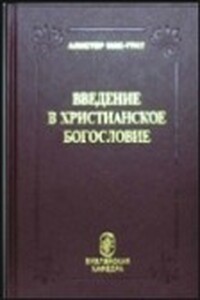
Книга знакомит читателя с основами христианского учения, с различными его направлениями, с историей их зарождения, развития и современным состоянием. Данная книга— результат десятилетнего опыта преподавания христианского богословия студентам в Оксфордском университете. Автор подробно освещает основные доктринальные вопросы христианского богословия. Повествование отличается глубиной, точностью, ясностью и систематичностью. Издание окажет неоценимую помощь как в качестве учебника для богословских учебных заведений, так и для тех, кто самостоятельно занимается изучением христианского богословия..

В книге рассказывается история главного героя, который сталкивается с различными проблемами и препятствиями на протяжении всего своего путешествия. По пути он встречает множество второстепенных персонажей, которые играют важные роли в истории. Благодаря опыту главного героя книга исследует такие темы, как любовь, потеря, надежда и стойкость. По мере того, как главный герой преодолевает свои трудности, он усваивает ценные уроки жизни и растет как личность.

Вышедшая к 50-летию кончины К. С. Льюиса биография написана на огромном фактическом материале. Алистер Макграт досконально изучил не только все написанное знаменитым «Джеком», включая обширнейшую переписку и дневники, но и множество до сих пор не учтенных исследователями документов и воспоминаний. Эта биография не только рассказывает читателю о жизни знаменитого писателя, ученого и апологета, но и предлагает авторские «ключи» к пониманию его творчества, одновременно разнообразного и непостижимо цельного.

В книге рассказывается история главного героя, который сталкивается с различными проблемами и препятствиями на протяжении всего своего путешествия. По пути он встречает множество второстепенных персонажей, которые играют важные роли в истории. Благодаря опыту главного героя книга исследует такие темы, как любовь, потеря, надежда и стойкость. По мере того, как главный герой преодолевает свои трудности, он усваивает ценные уроки жизни и растет как личность.

Недавно вышедшая на русском языке книга Р. Докинза «Бог как иллюзия» вызвала как в интернет-сообществе, так и в печати оживленную дискуссию о характере диалога науки и религии в современном мире. В данной статье, являющейся первой главой книги «Порядок вещей», автор, профессиональный биолог и богослов, дает обстоятельный ответ на вызовы христианскому богословию, представленные в сочинениях проф. Докинза.
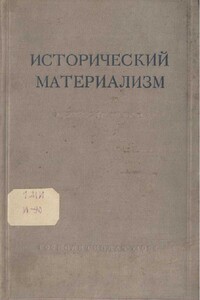
Из предисловия:Необходимость в книге, в которой давалось бы систематическое изложение исторического материализма, давно назрела. Такая книга нужна студентам и преподавателям высших учебных заведении, а также многочисленным кадрам советской интеллигенции, самостоятельно изучающим основы марксистско-ленинской философской науки.Предлагаемая читателю книга, написанная авторским коллективом Института философии Академии наук СССР, представляет собой попытку дать более или менее полное изложение основ исторического материализма.

В книге представлен результат совместного труда группы ученых из Беларуси, Болгарии, Германии, Италии, России, США, Украины и Узбекистана, предпринявших попытку разработать исследовательскую оптику, позволяющую анализировать реакцию представителя академического сообщества на слом эволюционного движения истории – «экзистенциальный жест» гуманитария в рушащемся мире. Судьбы представителей российского академического сообщества первой трети XX столетия представляют для такого исследования особый интерес.Каждый из описанных «кейсов» – реализация выбора конкретного человека в ситуации, когда нет ни рецептов, ни гарантий, ни даже готового способа интерпретации происходящего.Книга адресована историкам гуманитарной мысли, студентам и аспирантам философских, исторических и филологических факультетов.
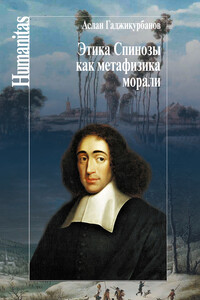
В своем исследовании автор доказывает, что моральная доктрина Спинозы, изложенная им в его главном сочинении «Этика», представляет собой пример соединения общефилософского взгляда на мир с детальным анализом феноменов нравственной жизни человека. Реализованный в практической философии Спинозы синтез этики и метафизики предполагает, что определяющим и превалирующим в моральном дискурсе является учение о первичных основаниях бытия. Именно метафизика выстраивает ценностную иерархию универсума и определяет его основные мировоззренческие приоритеты; она же конструирует и телеологию моральной жизни.
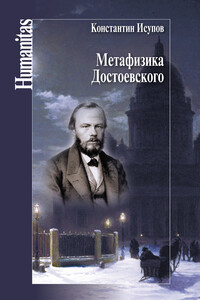
В книге трактуются вопросы метафизического мировоззрения Достоевского и его героев. На языке почвеннической концепции «непосредственного познания» автор книги идет по всем ярусам художественно-эстетических и созерцательно-умозрительных конструкций Достоевского: онтология и гносеология; теология, этика и философия человека; диалогическое общение и метафизика Другого; философия истории и литературная урбанистика; эстетика творчества и философия поступка. Особое место в книге занимает развертывание проблем: «воспитание Достоевским нового читателя»; «диалог столиц Отечества»; «жертвенная этика, оправдание, искупление и спасение человеков», «христология и эсхатология последнего исторического дня».
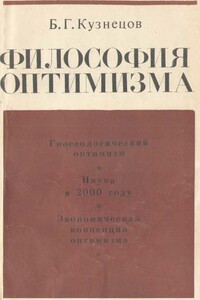
Книга посвящена философским проблемам, содержанию и эффекту современной неклассической науки и ее значению для оптимистического взгляда в будущее, для научных, научно-технических и технико-экономических прогнозов.
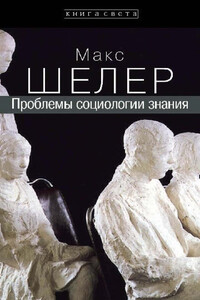
Основную часть тома составляют «Проблемы социологии знания» (1924–1926) – главная философско-социологическая работа «позднего» Макса Шелера, признанного основателя и классика немецкой «социологии знания». Отвергая проект социологии О. Конта, Шелер предпринимает героическую попытку начать социологию «с начала» – в противовес позитивизму как «специфической для Западной Европы идеологии позднего индустриализма». Основу учения Шелера образует его социально-философская доктрина о трех родах человеческого знания, ядром которой является философско-антропологическая концепция научного (позитивного) знания, определяющая особый статус и значимость его среди других видов знания, а также место и роль науки в культуре и современном обществе.Философско-историческое измерение «социологии знания» М.
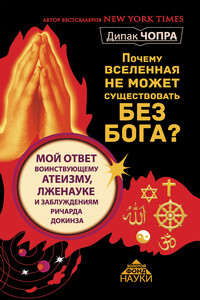
Существует ли Бог? Согласны ли вы с Ричардом Докинзом, который считает, что Бог – это просто иллюзия? И возможно, пора уже забыть о Боге? Ведь понятие Бога противоречит здравому смыслу, открытиям современной науки в области биологии, эволюции, физике, астрономии…Нет! Именно сегодня на фоне достижений науки, когда человечество получает все больше знаний о микромире, исследует дальний космос, проводит операции на генах, понятия «вера», «Бог» актуальны как никогда. Мир намного сложнее, чем на стерильной картинке Докинза.
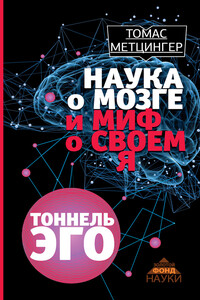
Эта книга одного из ведущих европейских философов-когнитивистов основана на последних научных исследованиях и посвящена радикальному переосмыслению природы человеческого сознания. Она объясняет, почему все наши интуитивные представления о собственном разуме неверны и почему человеческой личности просто не существует. Что такое сознание? Обладаем ли мы свободой воли? Можно ли научиться управлять снами? Как общество может измениться под воздействием последних открытий в нейрологии и какие опасности могут грозить нам в будущем? Обо всем этом и многом другом вы узнаете из этой книги, настоящего путеводителя по новой эпохе научных открытий в области человеческого разума, которые заставляют полностью пересмотреть наш взгляд на человеческое сознание, на то, кто мы такие и как взаимодействуем с миром.Перевод выполнен по дополненному и расширенному изданию 2014 года.
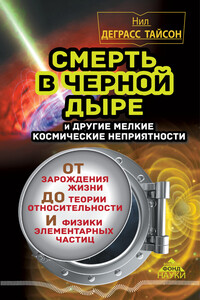
Нил Деграсс Тайсон – известный американский астрофизик и популяризатор науки, обладающий особым даром рассказывать о самых сложных научных вопросах понятно, захватывающе и с юмором. В этой книге вы найдете ответы на самые интересные вопросы о Вселенной: «Что будет, если упасть в черную дыру?», «Какие ошибки допускают создатели голливудских фильмов о космосе?», «Зачем построили Стоунхендж?», «Наступит ли когда-нибудь конец света?», «Как могут выглядеть инопланетяне?» и многие другие.Эта книга будет интересна и школьникам, и взрослым, интересующимся наукой.
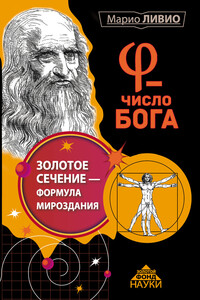
Как только не называли это загадочное число, которое математики обозначают буквой φ: и золотым сечением, и числом Бога, и божественной пропорцией. Оно играет важнейшую роль и в геометрии живой природы, и в творениях человека, его закладывают в основу произведений живописи, скульптуры и архитектуры, мало того – ему посвящают приключенческие романы! Но заслужена ли подобная слава? Что здесь правда, а что не совсем, какова история Золотого сечения в науке и культуре, и чем вызван такой интерес к простому геометрическому соотношению, решил выяснить известный американский астрофизик и популяризатор науки Марио Ливио.